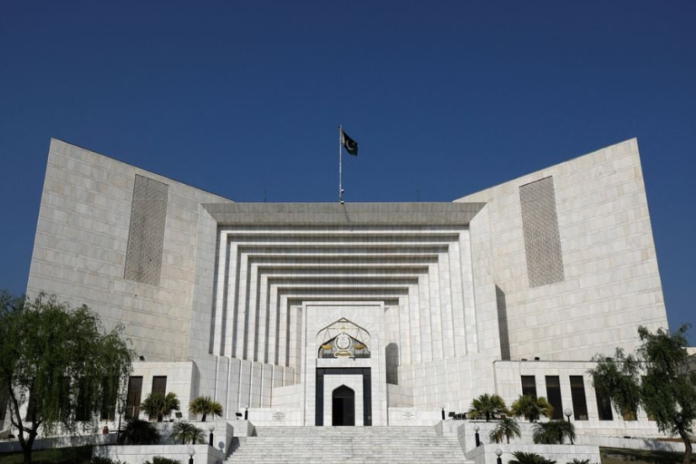ISLAMABAD – August 6, 2025
In a significant ruling, Pakistan’s Supreme Court has emphasized the necessity of stringent scrutiny and procedural fairness when handling embezzlement cases involving public funds. The top court highlighted that establishing misappropriation by public officials requires not only solid evidence but also a transparent and thorough inquiry process to ensure justice and recovery of taxpayer money.
The remarks came from a three-judge bench led by Justice Musarrat Hilali, as the court reviewed a service-related appeal involving allegations of financial misconduct by a government employee in Punjab.
Case Background: Forged Cheques and Dismissal
The case centered on Malik Muhammad Ramzan, a former government official in Mianwali, who was dismissed from service after being accused of altering cheque amounts through forgery, allegedly after securing signatures from authorized personnel. The disciplinary action was taken under the PEEDA Act, 2006.
Ramzan’s dismissal was upheld through multiple stages of departmental review and later by the Punjab Service Tribunal. Each forum rejected his pleas, concluding that the allegations were serious and warranted dismissal.
Accused Claims Lack of Due Process
Before the Supreme Court, Ramzan argued that his dismissal violated his right to a fair hearing. He claimed he was neither served a show-cause notice nor subjected to a formal inquiry before the major penalty was imposed.
However, the Punjab government’s legal representative countered this assertion, stating that all necessary procedural steps—including issuing notices and offering Ramzan the chance to respond—had been duly followed.
Supreme Court’s Observations
While not ruling on the case’s merits in detail, the Supreme Court used the hearing to stress the importance of following due process in financial misconduct cases involving public servants. The court noted that given the implications of such offenses on public trust and financial governance, any accusation must be backed by a comprehensive and impartial investigation.
“It is essential that all procedural safeguards are in place, both to punish the guilty and to protect the innocent from arbitrary action,” the court noted.
Broader Implications
This ruling signals the judiciary’s insistence on procedural fairness, even in cases where financial wrongdoing appears evident. It reinforces the principle that no dismissal or penalty can stand without strict adherence to the law—particularly when the stakes involve public money and public service careers.
The case now serves as a reminder to government departments and disciplinary bodies to ensure that justice is not only done but also seen to be done, especially in an era where accountability in public spending is under increasing scrutiny.

